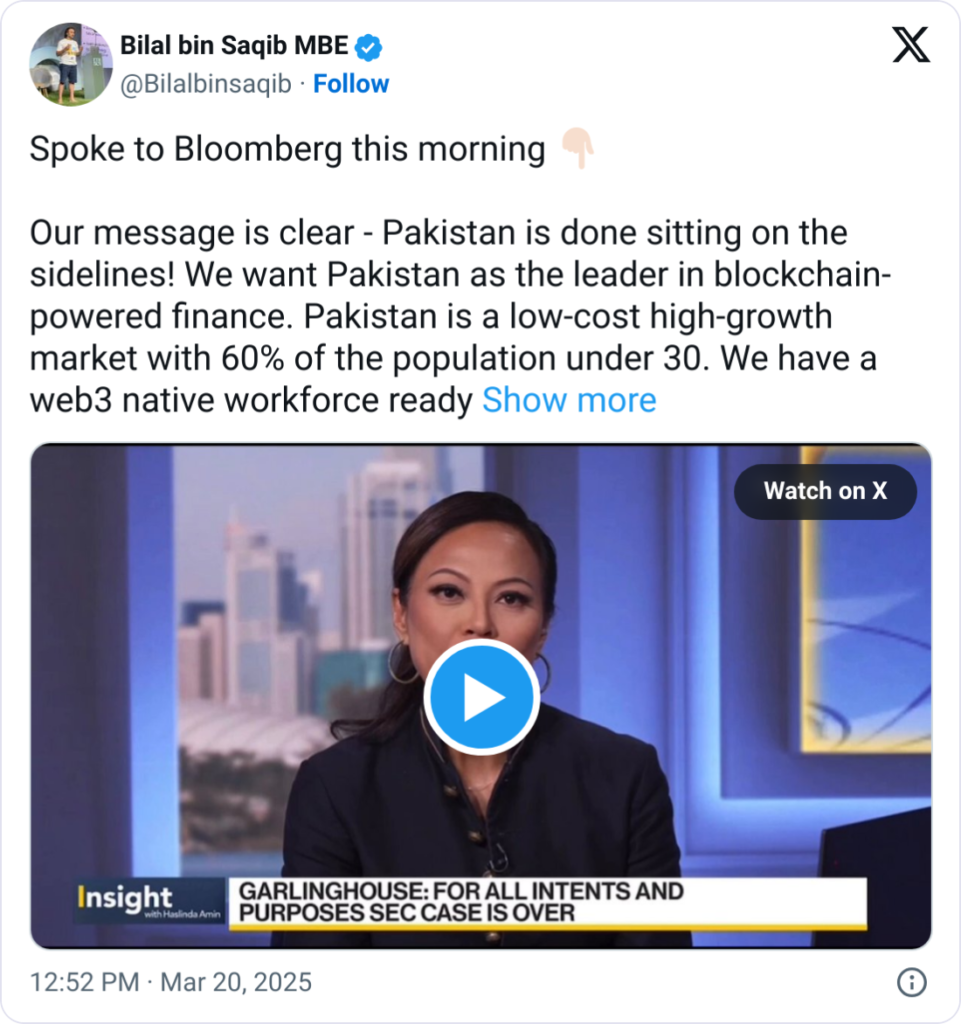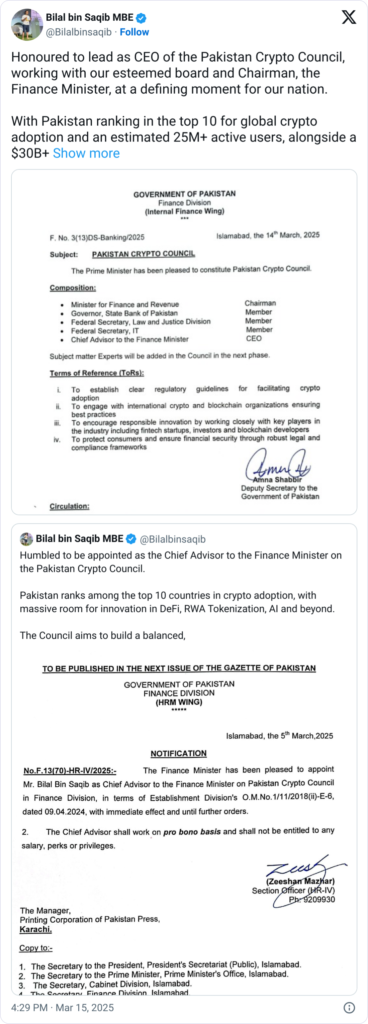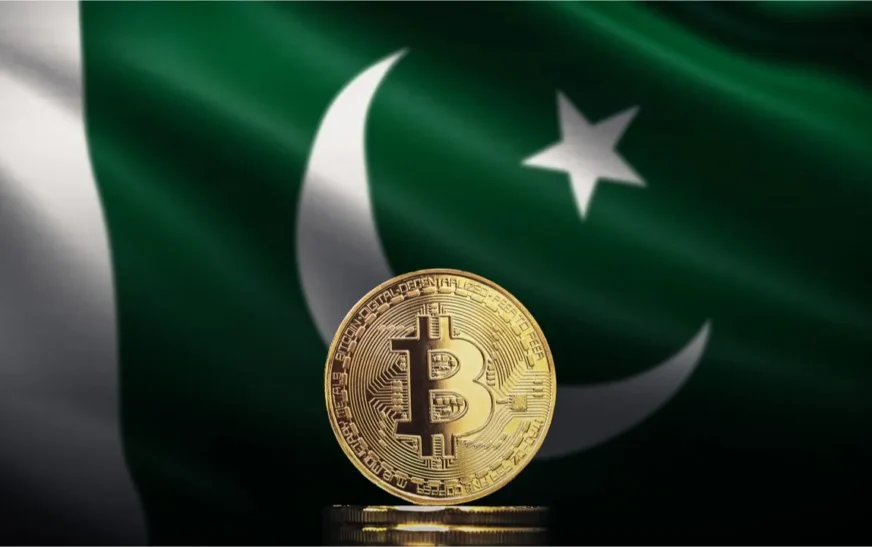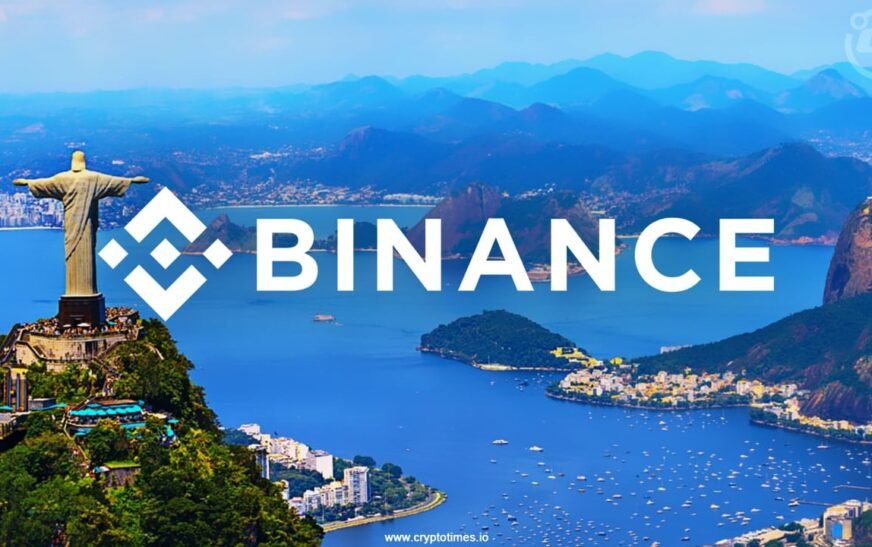Pakistan is gearing up to legalise cryptocurrency in a bid to attract foreign investors and position itself as a leader in blockchain finance. The move, led by the Pakistan Crypto Council (PCC), marks a significant shift for the country, which has largely remained on the sidelines of the crypto revolution.
A Bold Vision for Crypto Regulation
Bilal Bin Saqib, CEO of the Pakistan Crypto Council, has outlined an ambitious plan to bring regulatory clarity to the nation’s crypto landscape. He believes a pro-business legal framework will drive innovation and international investment.

“Pakistan is done sitting on the sidelines,” Saqib told Bloomberg. “We want to be the leader in blockchain-powered finance.”
With 60% of Pakistan’s population under 30, the country boasts a tech-savvy, Web3-native workforce ready to embrace crypto and blockchain-based solutions.
Pakistan’s Growing Crypto Adoption
Despite a lack of regulation, Pakistan ranked ninth globally for crypto adoption last year, according to Chainalysis. Estimates suggest up to 20 million Pakistanis are actively using digital assets, making it a prime candidate for official recognition and regulation.
Saqib’s appointment as chief adviser to Pakistan’s finance minister for crypto management signals the government’s increasing interest in the sector. His leadership aims to bridge the gap between policymakers and the country’s growing crypto community.
Trump’s Influence on Pakistan’s Crypto Policy
Saqib called Donald Trump “the biggest bullish catalyst for crypto in history”, citing the former U.S. president’s push to create a Bitcoin reserve and a crypto stockpile.

“Trump is making crypto a national priority, and every country, including Pakistan, will have to follow suit or risk being left behind,” Saqib warned.
This global shift towards digital assets is pushing Pakistan to accelerate its regulatory efforts to remain competitive in the evolving financial landscape.
Blockchain: A Game-Changer for Developing Nations
Pakistan isn’t alone in leveraging crypto for economic growth. Developing nations like Nigeria are also embracing blockchain technology to reduce reliance on traditional banking systems.
By integrating blockchain in remittances and trade, Pakistan could lower cross-border transaction fees from 5-9% and create more efficient payment networks.
Saqib believes this is just the beginning: “Pakistan is open for business.” With crypto-friendly policies, the country could soon emerge as a key player in the global digital finance space.





















































